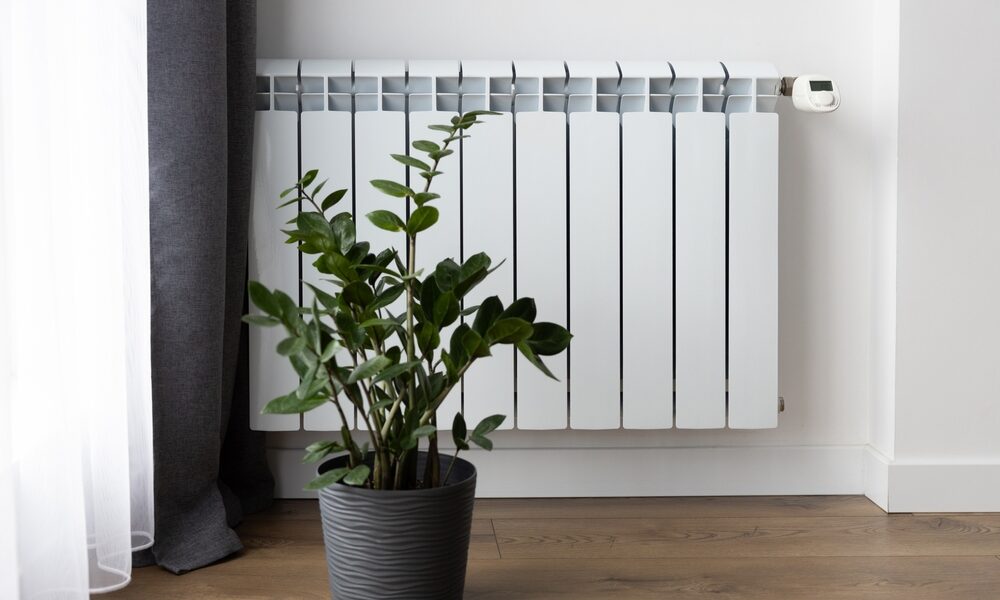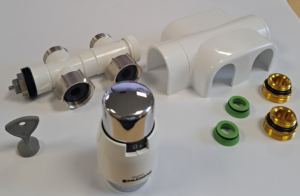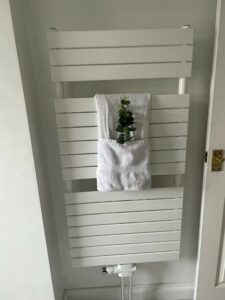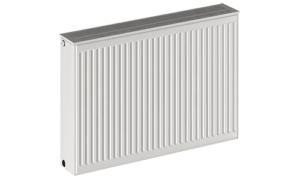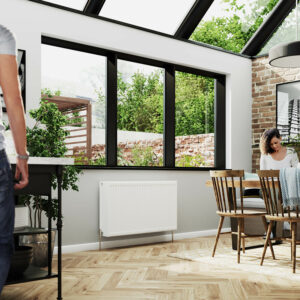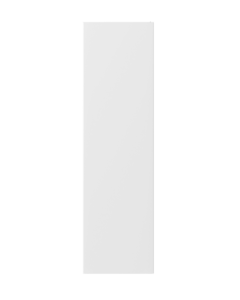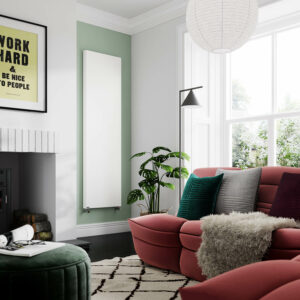Radiators are an essential part of any home. Despite their resilience, they are subject to general wear and tear and other complications. Most modern radiators last between 10 to 15 years. Although they may last longer, old radiators tend to be less efficient than newer models.
There are a few key signs to look out for to know when you need to replace your radiators. It may feel colder than it should, even after you’ve bled the radiator. This could be a result of issues such as corrosion, which creates a sludge that will block the water from circulating properly. Visible leaks in or around the radiator, strange noises and visible damage are all signs that you may need to purchase a new radiator.
Are Old Radiators Less Efficient?
You may have seen an increase in your energy bills, which could be a sign that your radiator needs replacing. Old radiators are less efficient and require more energy to run. Even with a brand-new boiler, its performance will be limited by old radiators. You may find rooms take longer to heat up or don’t reach the temperature you want because of old radiators.
How Often Should Radiators be Replaced?
If you’re wondering ‘should I replace 40-year-old radiators?’, the answer is yes. There’s no set time for when you should replace old radiators. However, as a general rule of thumb, you can expect to replace your radiators after 15 to 20 years. Some radiator models may need to be replaced after 10 years if they stop running properly.
What are the Tell-Tale Signs for Replacing a Radiator?
These are a few signs to keep an eye out for as they could indicate you need a new radiator.
Visible damage
Radiators that show visible damage likely need replacing. They could look rusty or corroded, which could result in the formation of holes.
Strange noises
Strange noises, such as clunking or excessive gurgling could also indicate there are problems within the radiator.
Needs bleeding more frequently
You might also find you have to bleed or flush out the radiator more frequently than you used to. This could be a sign that the radiator is corroding inside or isn’t able to circulate the water properly.
How to maintain your radiator to prolong its life
You should regularly dust and clean your radiators to remove any debris. Dirt can obstruct airflow and prevent it heating and cooling properly. You should regularly flush the radiator to remove the build-up of dirt and debris that creates a sludge within the radiator. The sludge can prevent the water circulating properly, which will stop the radiator heating up. Bleeding the radiator will release air pockets within the radiator and ensure the radiator is hot throughout. You should also regularly check the radiator for leaks and lubricate the valves and bolts. Check that the TRV (Thermostatic radiator valves) are functioning properly and replace them if necessary. You may find that the TRV has a stuck valve that is preventing it from maintaining a constant temperature in the room.
Our Best-Selling Radiators
Take a look at Stelrad’s best-selling radiators when it comes to replacing your old radiators. From the classic compact radiator series, which features the Green Compact and Classic Compact K3 to column radiators and designer radiators, we have radiators to suit any property and budget. Would you prefer the sleek finish of the Compact Vertical Line or the modern Compact Vertical Line Concept? Or is electric the way forward, with the innovative Agata and Alu Simple Dry.
Contact Us
Is your home in need of a heating refresh? Replace your old radiators with Stelrad’s high-performance radiators for improved efficiency, comfort, and style. Stelrad offers a wide range of modern designs that not only enhance your space but also help you save on energy bills. Don’t settle for less—experience the benefits of advanced radiator technology and enjoy a warmer, more efficient environment. Contact us on our sales hotline Monday to Friday, 8:00 to 17:00 on 0800 876 6813.
Will changing my old radiators make a difference?
Upgrading your old radiator will help improve the efficiency of your home’s heating. You may see a significant drop in your heating bills as your boiler isn’t having to work as hard to heat your property. Your new radiators should heat up quickly and maintain the correct temperature.
Is it cost-effective to replace the old radiators?
If you’re wondering ‘do old radiators need replacing’, you need to look at the bigger picture. While you will have to pay out in the short-term, buying new radiators will save you money in the long run. The new models will be more energy efficient, saving you money on heating bills. Some people wonder ‘how much does it cost to replace old radiators?’, but this all depends on the style and model of radiator you want. There are plenty of options to suit any budget.
Do new radiators add value to a house?
You may wonder ‘is it worth replacing old radiators with new?’ when you prepare to sell your house. New radiators can help make your property more appealing to potential buyers. Not only is it an expense the new home owners won’t have to pay, but modern radiators can also improve the aesthetic of a room. An old, corroding radiator could be the final straw to put potential buyers off. On the other hand, a sleek and modern radiator can help improve the overall look of a property.

